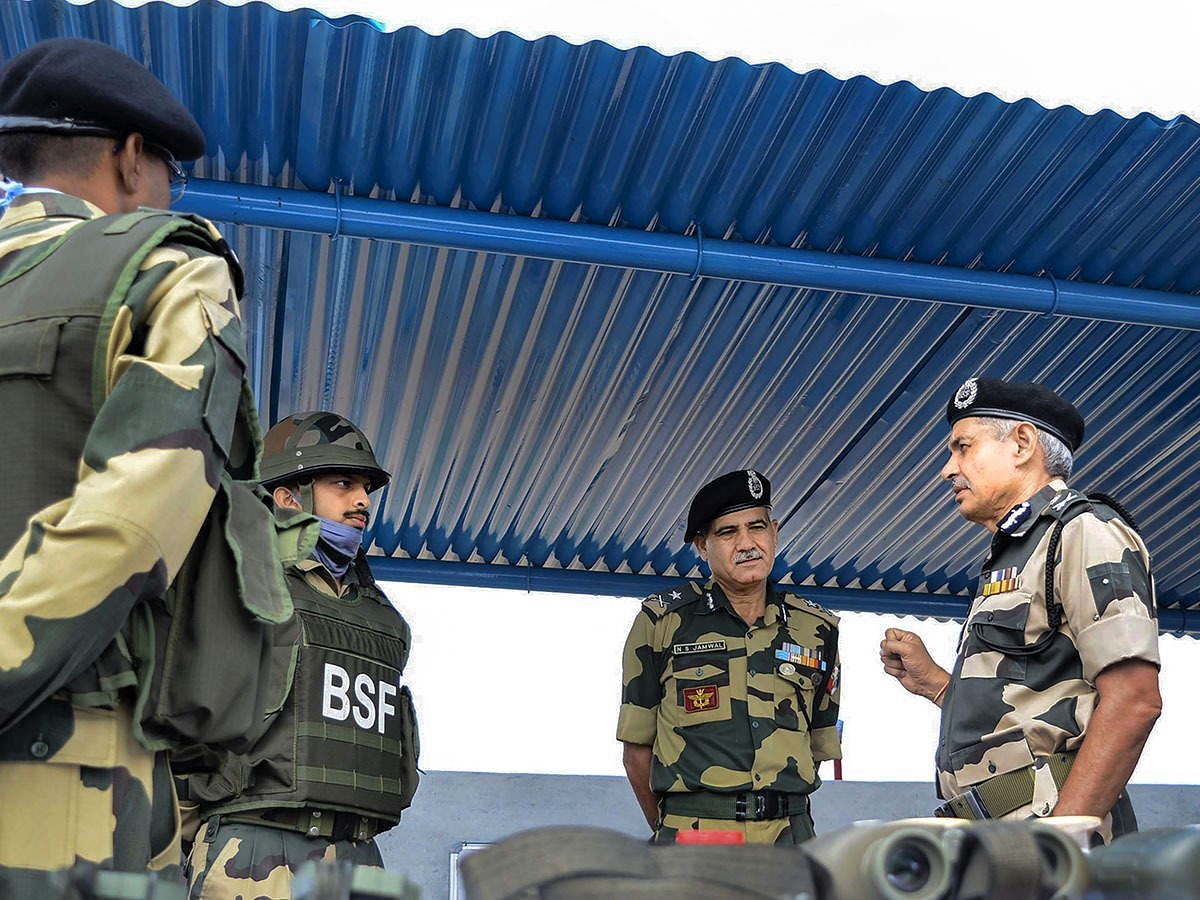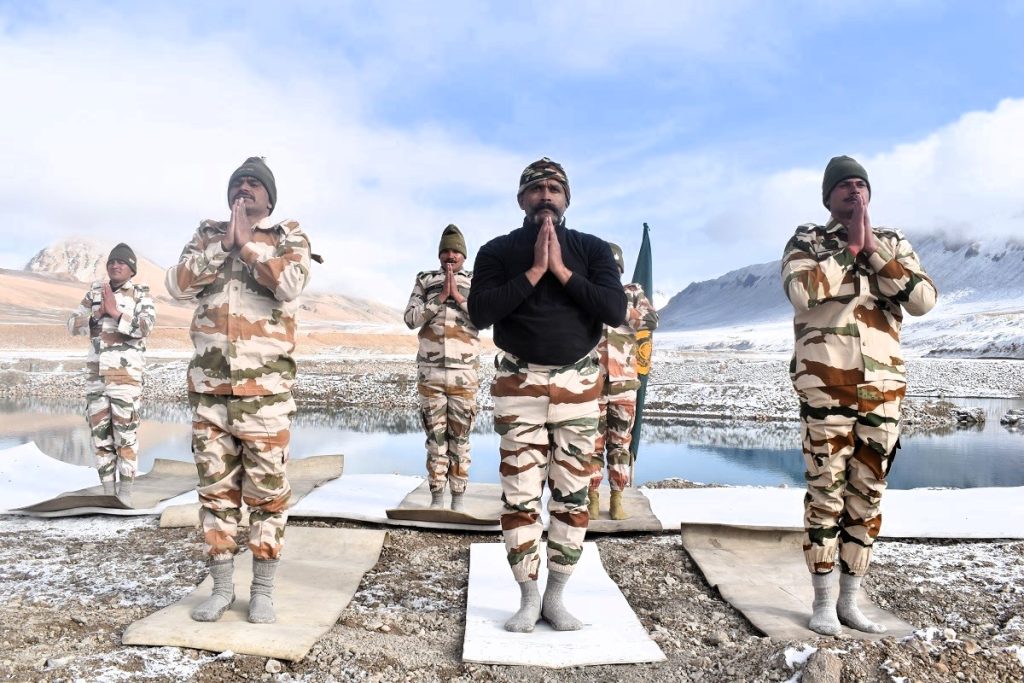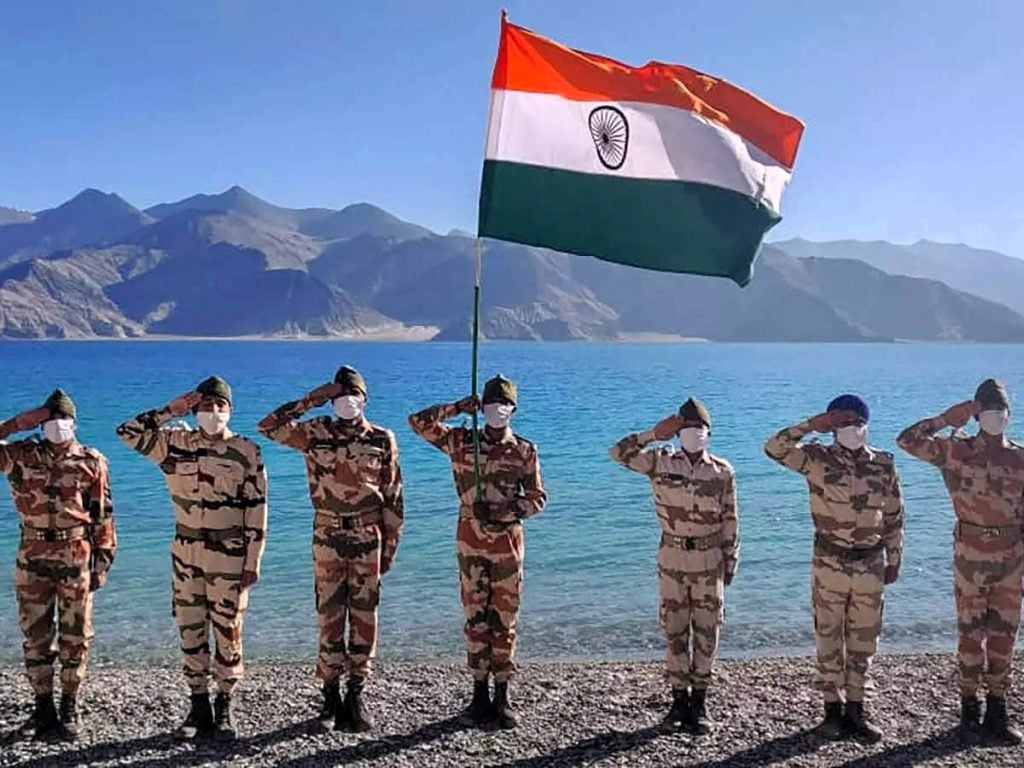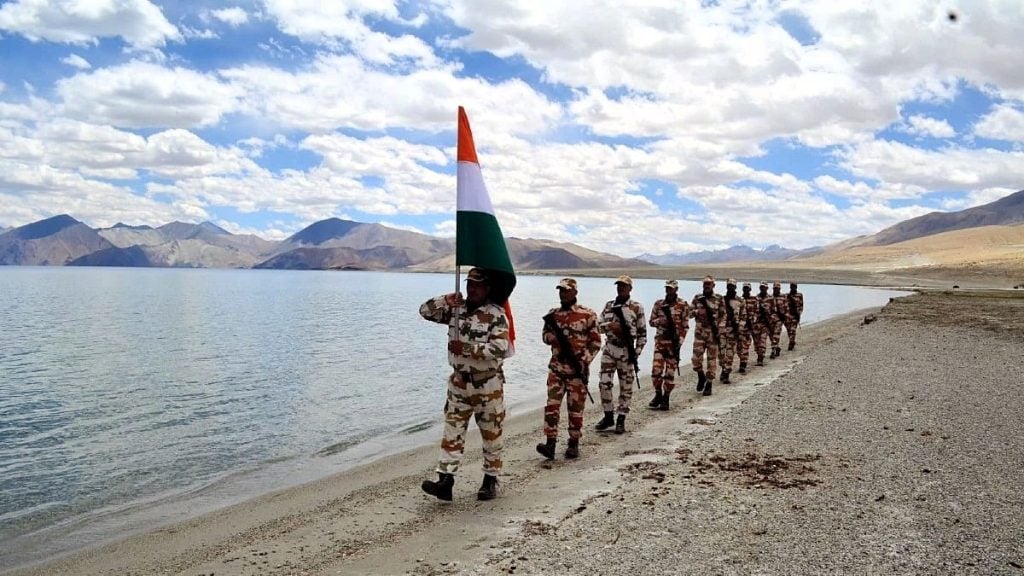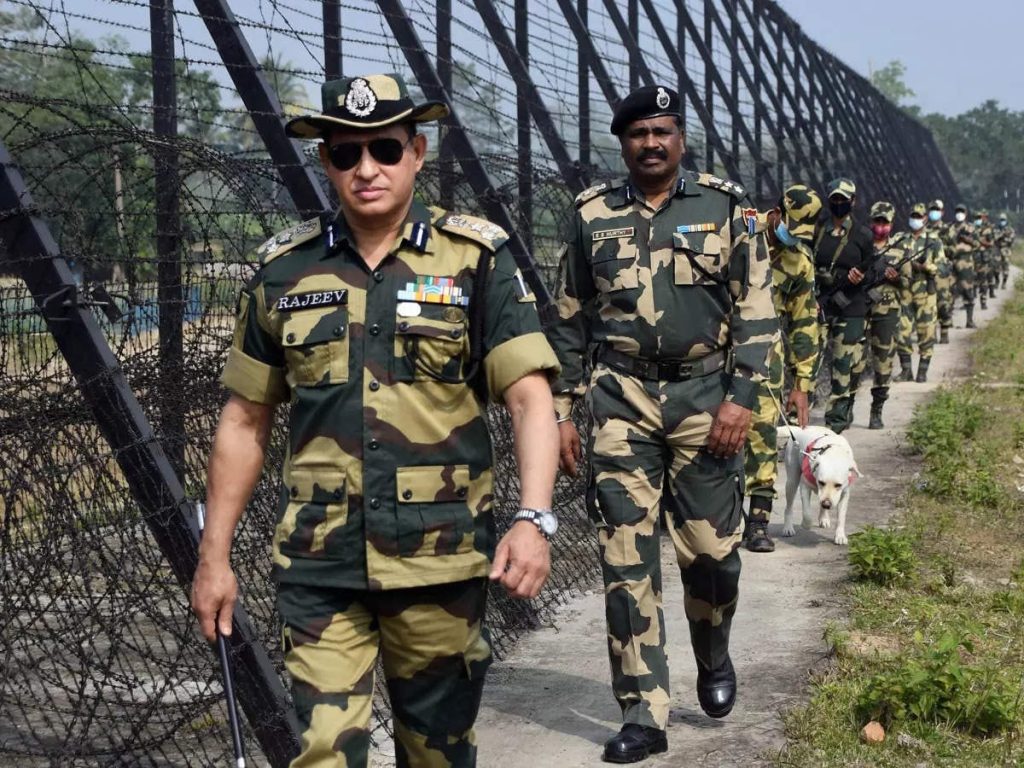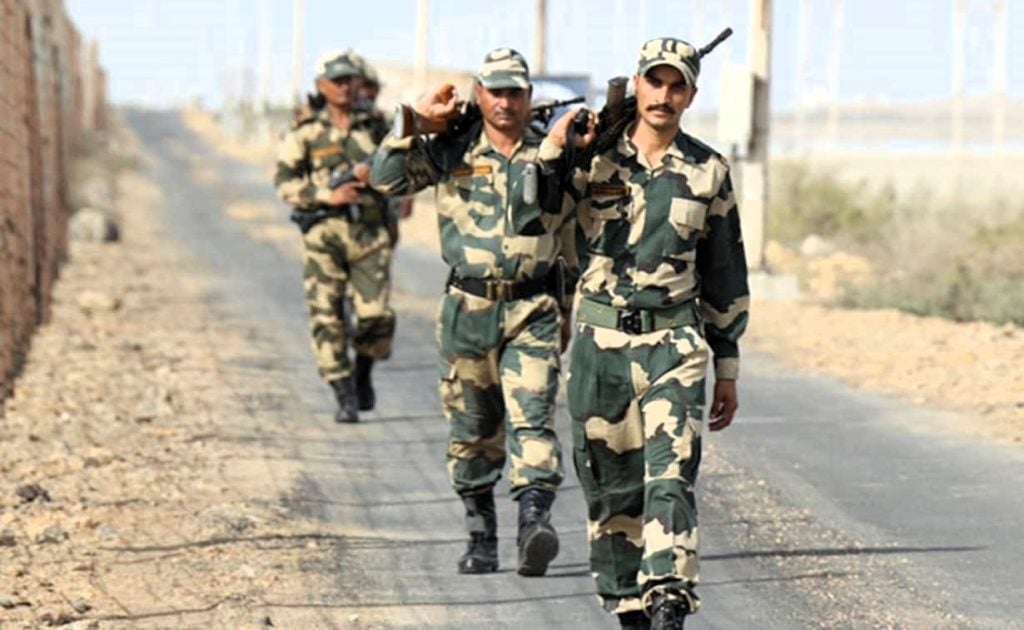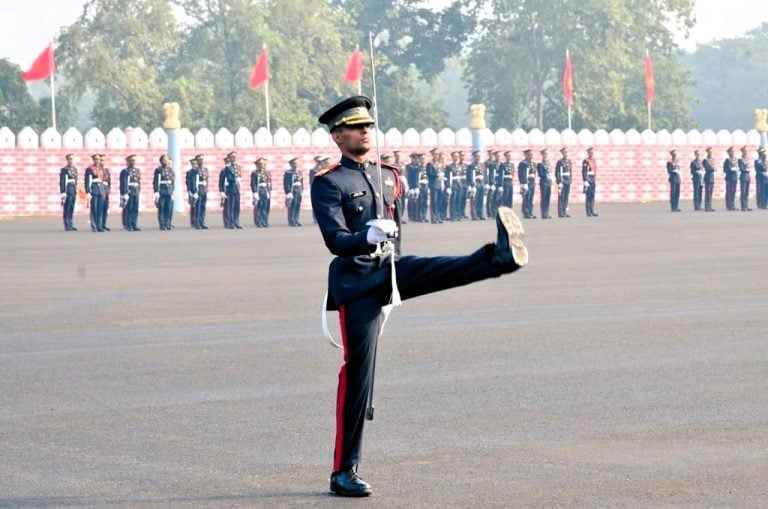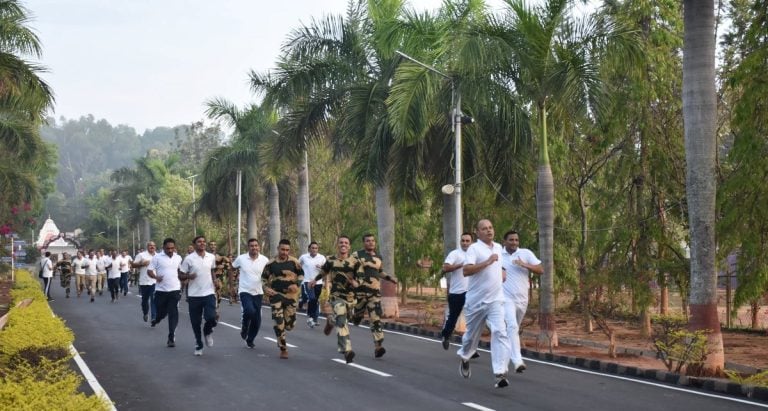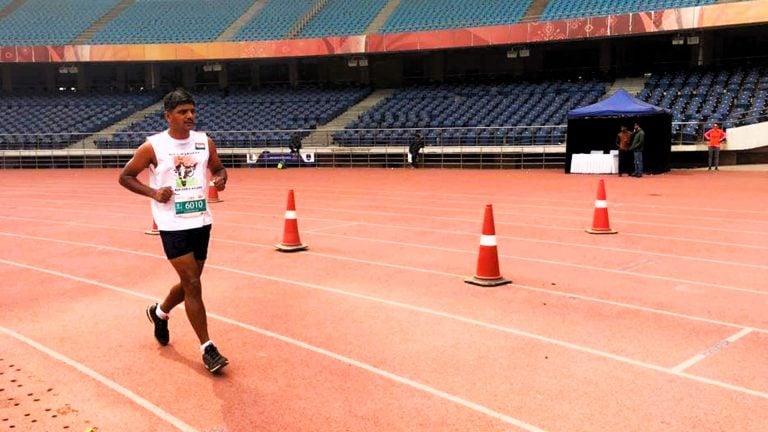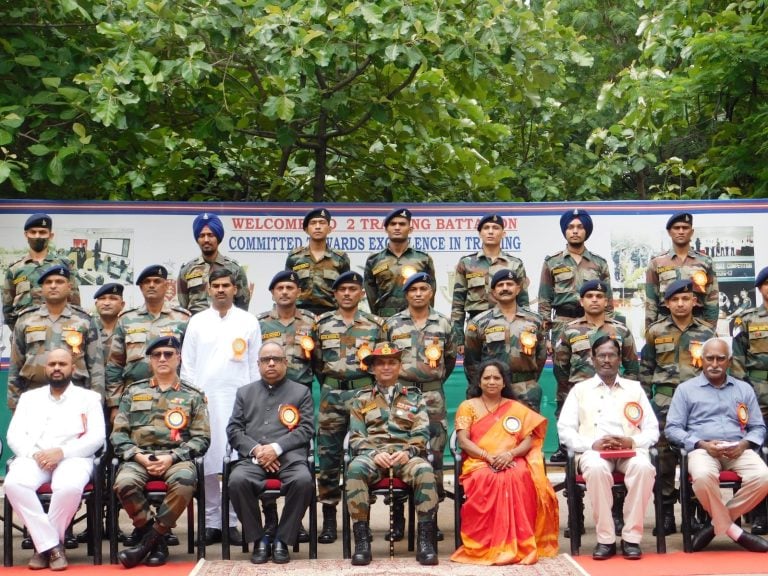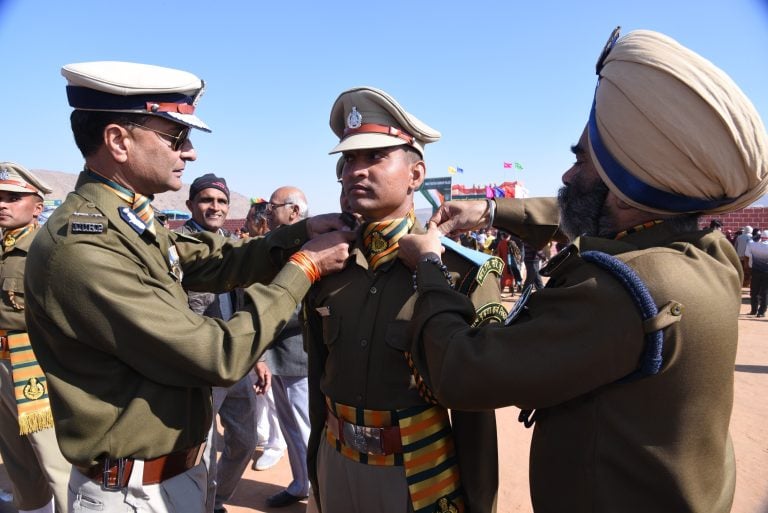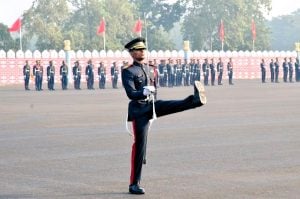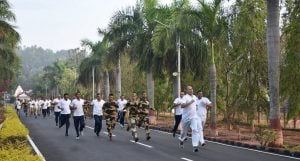When it comes to safeguarding India’s borders and ensuring internal security, two prominent paramilitary forces, the Indo-Tibetan Border Police (ITBP) and the Border Security Force (BSF), play crucial roles. Both organizations have distinct functions, operational areas, and responsibilities tailored to the specific challenges they face. In this comprehensive comparison, we’ll delve into the intricacies of ITBP and BSF to understand their differences and the unique contributions they make to national security.
Overview
Indo-Tibetan Border Police (ITBP)
Established in 1962, the ITBP primarily focuses on guarding the border with China in the challenging Himalayan terrain. Here are some key aspects of ITBP:
Border Security:
ITBP’s primary mission is to secure the border with China, which spans some of the world’s most challenging terrains, including high-altitude mountain ranges. It plays a crucial role in maintaining border integrity, thwarting infiltration attempts, and preventing trans-border crimes.
Roles and Responsibilities:
Apart from border security, ITBP is deployed for various internal security duties, disaster management, and humanitarian missions. It actively participates in relief operations during natural disasters like earthquakes and floods, showcasing its versatility and readiness to serve in diverse scenarios.
Training and Recruitment:
ITBP recruits personnel through rigorous selection processes, including physical fitness tests, written examinations, and interviews. Training focuses on high-altitude warfare, mountaineering, snow survival, and other specialized skills required for operations in harsh terrain and extreme weather conditions.
Work Environment:
Serving in ITBP entails living and operating in remote, high-altitude regions along the Indo-China border. Personnel face challenges such as extreme cold, oxygen deprivation, and rugged terrain. The job demands physical resilience, mental toughness, and adaptability to thrive in challenging environments.
Border Security Force (BSF)
Established in 1965, the BSF is one of India’s primary border-guarding forces, entrusted with securing the nation’s borders with Pakistan and Bangladesh. Here are some key aspects of BSF:
Border Security:
BSF is responsible for guarding India’s borders with Pakistan and Bangladesh, covering a vast expanse of diverse terrain, including deserts, rivers, and marshlands. It plays a vital role in preventing infiltration, smuggling, and other illegal activities along the borders.
Roles and Responsibilities:
Besides border security, BSF is involved in various internal security duties, including counter-terrorism operations, anti-insurgency operations, and disaster management. It works closely with other law enforcement agencies to maintain peace and order in border areas.
Training and Recruitment:
BSF recruits personnel through rigorous selection procedures, including physical endurance tests, written examinations, and interviews. Training focuses on border guarding techniques, combat skills, and crisis management abilities required for diverse operational scenarios.
Work Environment:
Serving in BSF entails living and working in border regions, often in remote and challenging environments. Personnel must be prepared to handle various threats, including cross-border terrorism, smuggling, and illegal immigration. The job demands vigilance, discipline, and a strong sense of national duty.
Key Differences
Operational Areas:
One of the primary differences between ITBP and BSF lies in their operational areas. ITBP primarily operates along the Indo-China border, focusing on the challenging Himalayan terrain, while BSF is responsible for securing the borders with Pakistan and Bangladesh, covering diverse landscapes such as deserts, rivers, and marshlands.
Specialized Skills:
Due to the nature of their operational areas, ITBP and BSF require different sets of specialized skills. ITBP personnel need expertise in high-altitude warfare, mountain climbing, and surviving in extreme weather conditions, whereas BSF personnel require proficiency in border guarding techniques, combat skills, and crisis management abilities tailored to their operational environments.
Recruitment and Training:
While both ITBP and BSF have rigorous recruitment and training processes, the specific requirements and focus areas differ. ITBP recruits undergo training emphasizing high-altitude warfare and mountain skills, reflecting the challenges of their operational areas, while BSF recruits undergo training focused on border guarding techniques and combat skills suited to their operational environments.
Work Environment:
The work environment for ITBP and BSF personnel varies significantly due to differences in operational areas and challenges. ITBP personnel operate in remote, high-altitude regions along the Indo-China border, facing extreme cold, oxygen deprivation, and rugged terrain, while BSF personnel work in border regions with diverse landscapes, including deserts, rivers, and marshlands, dealing with threats like cross-border terrorism, smuggling, and illegal immigration.
Conclusion
While both ITBP and BSF are vital components of India’s security apparatus, they have distinct roles, operational areas, and responsibilities tailored to the specific challenges they face. Choosing between ITBP and BSF depends on individual preferences, career aspirations, and personal circumstances. Both forces offer rewarding careers dedicated to serving the nation and protecting its borders. Ultimately, the choice between ITBP and BSF should be based on careful consideration of factors such as operational requirements, training, work environment, and personal interests.
FAQs
Q1: What are ITBP and BSF?
ITBP stands for Indo-Tibetan Border Police, while BSF stands for Border Security Force. Both are paramilitary forces of India responsible for safeguarding the nation’s borders and ensuring internal security.
Q2: What are the primary differences between ITBP and BSF?
The primary differences lie in their operational areas and responsibilities. ITBP focuses on guarding the border with China along the Himalayas, while BSF is responsible for securing the borders with Pakistan and Bangladesh. Additionally, their training and specialized skills differ to suit their respective operational environments.
Q3: What are the operational areas of ITBP and BSF?
ITBP primarily operates along the Indo-China border, dealing with challenging terrains such as high-altitude mountain ranges. BSF, on the other hand, is responsible for guarding the borders with Pakistan and Bangladesh, covering diverse landscapes including deserts, rivers, and marshlands.
Q4: What specialized skills do personnel of ITBP and BSF require?
ITBP personnel need expertise in high-altitude warfare, mountain climbing, and surviving in extreme weather conditions due to the nature of their operational areas. BSF personnel require proficiency in border guarding techniques, combat skills, and crisis management abilities tailored to their operational environments.
Q5: How are recruitment and training different for ITBP and BSF?
Both ITBP and BSF have rigorous recruitment processes, but the focus areas differ. ITBP recruits undergo training emphasizing high-altitude warfare and mountain skills, while BSF recruits undergo training focused on border guarding techniques and combat skills suited to their operational environments.
Q6: What are the challenges faced by personnel of ITBP and BSF?
ITBP personnel face challenges such as extreme cold, oxygen deprivation, and rugged terrain in remote, high-altitude regions along the Indo-China border. BSF personnel work in border regions with diverse landscapes, dealing with threats like cross-border terrorism, smuggling, and illegal immigration.
Q7: How do ITBP and BSF contribute to national security?
Both ITBP and BSF play crucial roles in safeguarding India’s borders, maintaining border integrity, preventing infiltration and illegal activities, and ensuring internal security. They also participate in disaster management and humanitarian missions to serve the nation in diverse scenarios.
Q8: Which force should one choose between ITBP and BSF?
The choice between ITBP and BSF depends on individual preferences, career aspirations, and personal circumstances. Factors to consider include operational requirements, training, work environment, and personal interests.
Q9: Are ITBP and BSF involved in other duties besides border security?
Yes, besides border security, both ITBP and BSF are involved in various internal security duties, including counter-terrorism operations, anti-insurgency operations, disaster management, and humanitarian missions. They work closely with other law enforcement agencies to maintain peace and order in border areas.
Q10: How do ITBP and BSF contribute to disaster management?
ITBP and BSF actively participate in relief operations during natural disasters like earthquakes and floods. They provide assistance in rescue efforts, evacuation, and distribution of essential supplies, showcasing their versatility and readiness to serve in diverse scenarios.

